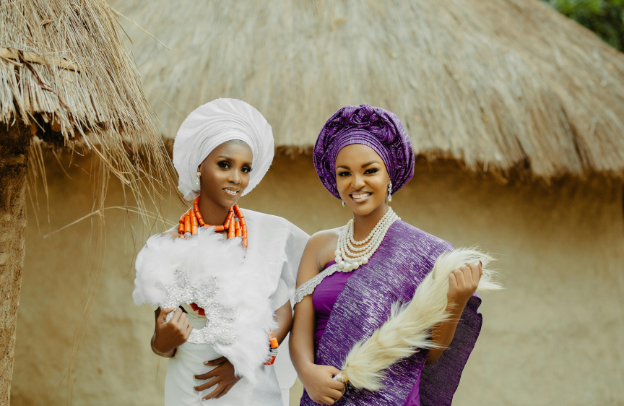How Group Tourism Fosters Mutual Understanding Among African Diaspora Communities

It begins not with a plane ticket or passport stamp, but with a story, one told at the edge of a slave fort in Ghana, in the rhythm of drums echoing through the streets of Salvador, Brazil, or around a shared pot of jollof rice in a Nigerian village. Group travel, once the domain of leisure and photo ops, has quietly evolved into a transformative cultural bridge among African diaspora communities.
Learn How to Leverage Your Story through our Story To Asset Framework.
As more Black travelers seek purpose-driven journeys, they are discovering something deeper than sightseeing: an opportunity for mutual understanding, healing, and collective identity rooted in shared heritage.
Across continents, African-descended peoples are gathering in growing numbers for group tours to the continent and within the diaspora itself; from Jamaica to South Africa, from New Orleans to Accra.
These experiences are doing more than educating travelers about culture and history. They are reweaving a fractured tapestry of global Black identity, enabling deeper emotional bonds and cultivating dialogue rooted in African principles such as ubuntu, “I am because we are.”
Rediscovering Identity Through Shared Experience
For many in the African diaspora, particularly in the Americas and the Caribbean, centuries of displacement and systemic erasure have severed ties to ancestral homelands. Group travel has emerged as a modern-day pilgrimage, a structured way to trace cultural footprints and reclaim historical agency.
But beyond individual enlightenment, these journeys catalyze dialogue among Black people of different geographies, allowing them to explore what connects and sometimes divides them. As author and cultural curator Dr. Runoko Rashidi often emphasized, pan-African travel opens space for the diaspora to reconnect not only with Africa but with one another.
See also Top 5 African Americans of the Present Time
When African Americans tour Senegal’s House of Slaves on Gorée Island or when Caribbeans participate in heritage tours of Benin’s Vodun Festival, they are often in dialogue with other diaspora groups, confronting their varying yet shared histories of colonialism, resistance, and survival.
These interactions foster empathy. A 2023 study in the Journal of Heritage Tourism found that group heritage travel enables African diasporans “to better understand cultural nuances and reframe identity beyond nationalistic boundaries,” supporting emotional and cultural reconciliation.
Ubuntu and the Power of Collective Connection
Group travel’s unique power lies in its ability to facilitate connection, not just to land and history, but to each other. African philosophical principles play a key role in guiding these interactions. The Southern African principle of ubuntu, often translated as “humanity towards others,” encourages a sense of community and shared destiny.
Tour organizers like Birthright AFRICA intentionally integrate ubuntu-based dialogue circles and group reflections into their experiences to nurture emotional connections among travelers.
You might also consider Leadership Based on the Concept of Ubuntu
These moments of reflection are essential. They enable travelers from diverse diaspora communities, say, African Americans and Afro-Brazilians, to explore differences in language, expression, or historical trauma within a framework of mutual respect.
Rather than glossing over painful legacies, group travel structured around ubuntu allows participants to confront the past together, and emerge with a deeper sense of kinship.
This ethos was especially visible during Ghana’s Year of Return, a landmark 2019 initiative that marked 400 years since the first enslaved Africans arrived in Virginia. The campaign welcomed over one million diaspora visitors between 2019 and 2022.
While many came to visit slave forts or attend music festivals, it was the emotional depth of group connections that left the most lasting impressions. “It was more than a trip,” said Brooklyn-based educator Shavon Joseph. “It felt like we were building a family we didn’t know we had.”
Building Coalitions Across Borders
Group travel doesn’t just forge emotional bonds, it also seeds tangible partnerships. Diasporans who meet on culturally immersive tours often discover aligned passions that lead to cross-continental ventures in business, art, and education.
See also Group Tourism as a Catalyst for Diaspora Activism and Collaborative Community Projects
During events like Afrochella; rebranded as Afrofuture in 2023, group tours to Ghana often include networking opportunities with local creatives and entrepreneurs. These encounters frequently lead to collaborative ventures: U.S.-based fashion designers partnering with West African textile makers, or Caribbean agriculturalists exchanging techniques with Nigerian farmers.
Such collaborations are championed by organizations like The Travel Africa Movement, which designs group trips with intentional opportunities for exchange and collaboration. Their programs include planning sessions where participants work across borders to develop solutions for economic empowerment, education reform, and mental health support.
These initiatives are a modern-day expression of harambee, the Swahili concept meaning “pulling together.” Originating in Kenya, harambee speaks to communal responsibility and cooperation, values that resonate deeply within group travel experiences aimed at building more than just memories.
Storytelling as a Bridge to Understanding
Perhaps the most powerful tool of group travel is storytelling. Cultural journeys often include live performances, oral history sessions, and interactive workshops that elevate Black narratives from local communities.
These moments offer travelers firsthand perspectives that challenge stereotypes and restore silenced voices.
Through storytelling, diasporic travelers often discover unexpected cultural parallels. The resilience of Jamaican Maroons mirrors the survival strategies of Brazil’s Quilombola communities. Spiritual practices rooted in Yoruba cosmology surface across Black traditions in New Orleans, Cuba, and Haiti. These shared symbols and rhythms become connective threads.
Initiatives like Decolonizing Travel push these narratives further by challenging Eurocentric travel frameworks and uplifting the voices of Black and Indigenous guides. “Telling our own stories in our own voices during these journeys empowers us to see each other in a fuller, truer light,” says founder Inez Thompson. Rather than passively consuming culture, travelers become co-creators of meaning and memory.
Extending the Journey Through Digital Community
The connections sparked by group travel don’t end at the airport. In fact, many grow stronger through digital platforms where travelers continue conversations, share content, and collaborate on future projects.
Hashtags like #BlackTravelMovement and online communities such as Nomadness Travel Tribe and Black Girls Travel Too have become digital extensions of group tours, spaces for reflection, resource sharing, and coalition building.
Virtual tours are also helping bridge gaps for those unable to travel physically. Projects like Virtual Wakanda Tours and Experience Africa Today provide immersive VR journeys to African heritage sites, ensuring broader access to cultural connections. These innovations make the process of diasporic reconnection more inclusive and scalable.
See also Connecting the Diaspora: The Role of Cultural Connectedness in African Tourism Success
As Nigerian-American strategist Chika Okeke observes, “The trip is just the spark. What matters most is what we build together when we return home.” For many, the relationships forged on tour lead to lasting personal and professional collaborations, mentorship networks, and even social justice initiatives.
A Blueprint for Future Unity
In an age of increasing polarization and historical amnesia, group travel among African diaspora communities offers a profound counter-narrative. These journeys are not about escapism—they are about encounter, empathy, and empowerment. They bring to life African values like ubuntu and harambee, transforming ancient wisdom into modern-day practices of solidarity.
The rise of group travel as a cultural bridge suggests a promising roadmap for diasporic healing. It shows that through shared stories, sacred places, and intentional community-building, the global African family can begin to see itself fully, deeply, and together.
Each collective journey becomes more than a vacation. It becomes an act of resistance, a ritual of remembrance, and a bold step toward a united future.
Learn How to Leverage Your Story through our Story To Asset Framework.





